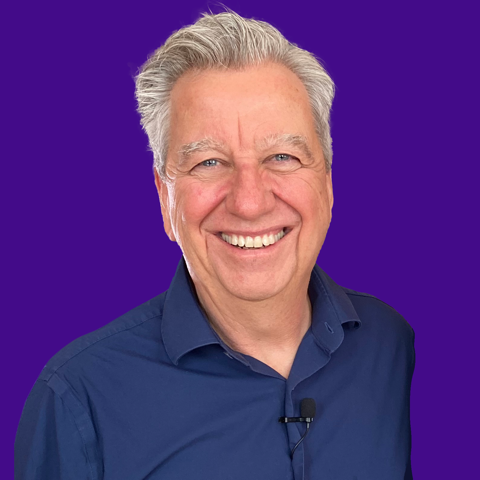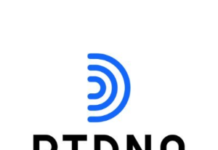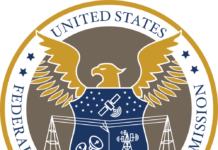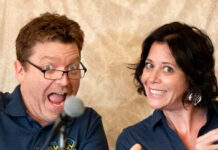
(By Eric Rhoads) The year was 1973. I graduated high school in January of that year and was working weekends in Kalamazoo at WYYY. Radio was in my blood and college wasn’t in my future, so I needed to find full-time work. I got close to the all-night gig at WABC and at WLS, but in both cases, Rick Sklar and John Gehron said they had tried to get me hired but had to fill the slot with someone to help them meet affirmative action requirements.
I had sent my aircheck to Gary Taylor of the Gavin Report, who I had befriended and who was anxious to help me. He said he was aware of a new station coming on the air and could not say anything more, but had sent them my aircheck. Within days I received a call from Ronnie Grant, who said he was the new PD.
“Buzz Bennett [the consultant] likes the way you say ‘Y.’ Can you be here in 2 days? We’re putting on a new FM station and we’re going to be #1 in the market.” The next morning I hopped in my little VW Bug and drove from Fort Wayne, Indiana to Fort Lauderdale. Fortunately, my folks had friends who could get me into a little efficiency apartment with no notice. And the KenAnn building was just a mile from my new home.
Upon arrival, I was greeted enthusiastically and shown around the station. I had visions of something special, but it was small and about the same as the stations I’d been working for. Mostly old equipment. But that was soon to change because one of the first people I met was Jack Williams, who had a start-up called Pacific Recorders. He was building a state-of-the-art 4-track production studio and installing one of his new control boards and MCI 4-track recorders. (MCI was less than two miles away).
Soon after arriving, I could hear muffled screaming, then a door slammed, and someone stormed out of the station. It turns out the General Manager, Dick Casper, was a screamer. But he calmly walked out, gave me a big smile, and warmly welcomed me to the station, which was owned by Cecil Heftel in Hawaii. But it was a signal of a lot more screaming to be overheard in the future. Thankfully I was never the recipient, though I probably deserved it.
Soon I found myself at a little house along the Intracoastal for my first “jock” meeting. The woman who greeted me was kind, sweet, and welcoming, and then proceeded to warn me, “Things can get a little crazy around here.” With that, she gave me a tour of the house, including where all the illegal drugs were stored. There were garbage bags of pot under the beds, I remember.
I met Buzz Bennett, who I immediately clicked with. He told me how much he loved my aircheck and was looking forward to working with me. I met his assistant Steve Gaspar, and soon, my jaw dropped as legends I had heard of, heard air checks of, or actually heard on the air started filtering in. I had heard Ronnie Grant on “MYQ” and Don Cox (Don Obrien) on CKLW. Roby Younge was there from New York, Larry McKay from KRIZ in Phoenix, and some others who became friends, that I had not known. Remember, I was 17, and very impressed, but felt like I did not belong, and that I could not have been good enough. I suppose I had a bit of imposter syndrome.
The details of the meeting escaped me other than the word that we were going to give away more money than any radio station in history, starting with a $50,000 jackpot to someone who answered the phone, “I listen to the new sound of Y100.”
The next day we switched the format at about 6 am. The station, WMJR was an elevator music station. I remember the first words “Are we on?” uttered by Roby Younge. Then he began his show. I was up recording it all (hear my collection on REEL Radio), and I remember thinking, this guy is a legend, but I could not understand why. They must know something I don’t know.
At the end of his show, it’s rumored that Dick Casper told him, “If that was my first show I’d slit my wrists.” Roby quit on the spot. And John Emm, the news guy was told he had to do news and mornings. A day later, Larry McCabe, the midday guy, was given the slot and the two had a magical chemistry.
The station was packed with high energy and sounded great. Then I went on the air, for my 10-2 am slot, and I sucked. I just did not know it. They gave me some coaching and a week later, I was given the all-night slot. But at least I didn’t get yelled at by Dick Casper and lose my job.
What I did not really understand was the importance of ratings in a market like South Florida. A single rating point at the time could make a difference between success and failure; therefore, the radio war was serious. Ronnie Grant and Dick Casper had built MYQ and now had to beat it. As a result, things got ugly. During a ratings week someone drained the oil out of the transformer in the Y100 building on a Friday night (I was on the air) on a holiday weekend, meaning we would be off for a few days. John Baile, the engineer, quickly got a portable generator, put it on the roof, took a cart machine, a small mixing board, and the STL link to the transmitter, and we remained on the air from the roof. We were off for less than an hour. Meanwhile, Heftel flew a transformer in from Hawaii and had the building operational within 24 hours.
Another time we received a call that the guy wires of the tower had been cut, except a single strand, which meant that a wind would bring it down and take Y100 – and some other stations – with it. Quick action and Heftel’s willingness to do what it takes got it fixed and kept it from falling.
Right after the power outage at Y100, our biggest competitor WMYQ was hit with a mysterious power surge, which fried the entire studio. They recovered by putting the DJs from KCBQ on the air by phone, music, and all. It sounded awful, but they recovered. But in the end, Y100 won its first ratings book by a fraction.
I’m told that the $50,000 cash call strongly drove those ratings. And once Mrs. Jack Bray won, the media gave Y100 tons of publicity, and suddenly everyone was answering their phone with the phrase that pays.
Eventually, Buzz Bennett and Steve Gaspar were fired, and replaced by John Rook. John came in, and changed my air name from “Hymn” (a name Buzz came up with) to my real name. Due to some immaturity, I punched a hole in a wall out of anger over something and got fired. Right before that Bill Tanner had been hired as assistant PD. Soon after Rook was fired, I was rehired by Tanner, which is the era in which the station took off to the next level. It’s there I developed a lifelong friendship with Tom Birch and others. I was eventually fired again and was on the air the same day at the competitor across the street (WMYQ) working for Jerry Clifton, which is another story for another time.
It is a rarity for a radio station to turn 50. There are many temptations for format changes and new trends, yet Y100 was so strong it became an institution in South Florida and has remained one.
I’m not sure if Y100 is acknowledging their 50 years. I’d probably think twice if my station was appealing to young audiences. Fifty seems pretty old.
I recorded a call with the initial Y100 airstaff (see it here), but there are probably people I did not mention or include. We tried to find everyone, but we could not find Davey O’Donnell, who did nights, and we did not include any other employees from that era. The others, to our knowledge, are all gone. Ronnie Grant, Buzz Bennett, Don Cox, Dick Casper, Roby Younge (who lasted one day), and probably people I’m forgetting. I worked with many others who came in subsequently while I was there in the Tanner era, including Todd Chase, Cramer Haas (deceased), Dave Dunnaway, Tom Birch, Quincy McCoy, Jim Rehlie, Kid Curry, Matt Mills, and Peter January. And I should acknowledge the numerous great people who worked at that radio station who became legends in Miami – too many to mention.
I’d also like to acknowledge the powers at iHeartMedia for keeping this brand alive. I think it takes someone like Bob Pittman, who has spent his life in radio, to appreciate the power of a brand like Y100.
Walter Sabo told me last week, “You must have been a great disc jockey to have a job at Y100. They had their choice of anyone in the country, and they picked you.” I had never really thought about that. I sent a tightly edited aircheck of my best breaks ever, and I was not able to live up to that performance initially. But Buzz, Tanner, and others worked with me and helped me become better.
I was seventeen and just out of high school at Y100. Fifty years seems like such a long time. Yet I still get chills thinking about what a wonderful experience I had during my two times working at that station. It was a launch pad like no other. I’m honored to have been a part of it.
Eric Rhoads is Chairman of Radio Ink Magazine and Streamline Publishing and can be reached by email at [email protected]







Eric,
I remember all of the Y100 sign on and the Miami Radio Battles.
Hecwas a great time.
Bill Hennes